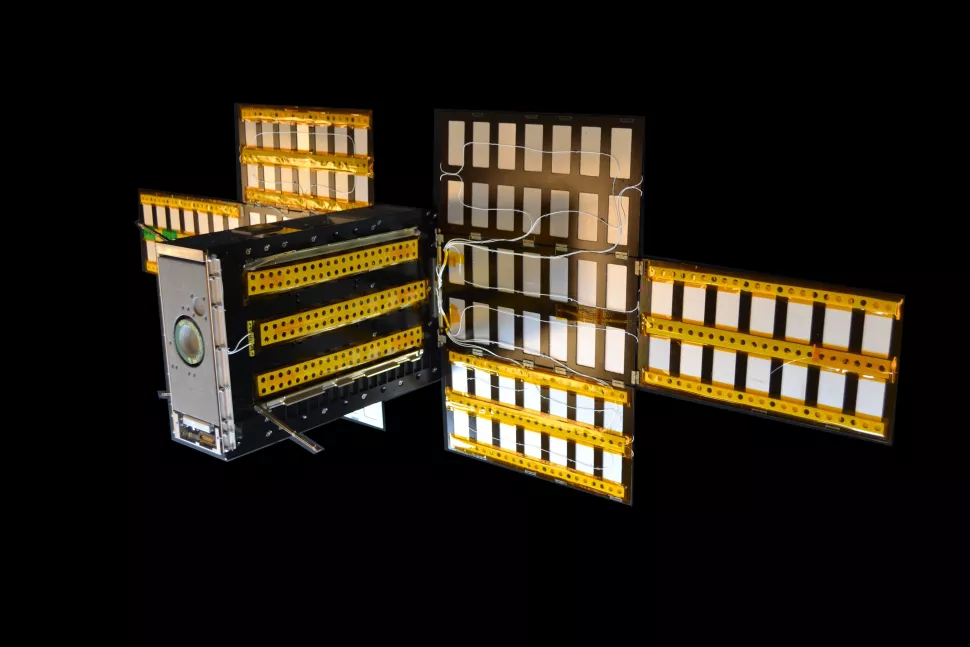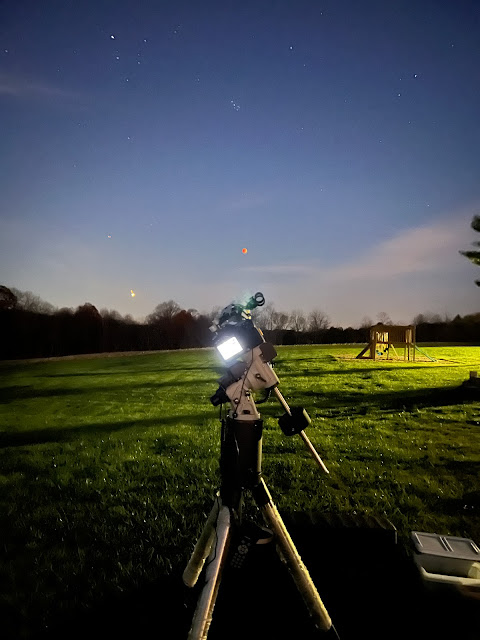The last total lunar eclipse until March of 2025 is now in the past. At first, I didn't expect to see it let alone photograph it as the weather forecasts were all calling for high cirrus clouds from 3:00am to 7:00am. The partial would phases would be OK, but if the moon goes really dark during the total phase, the clouds may have made it near impossible to see.
I prayed before I left the house for the skies to clear. I was planning to drive to my church in Westminster MD since the tree line surrounding my house where the permanent scope is set up doesn't allow any views of objects lower than 25 degrees and most of the event would occur at 20 degrees or less, with mid eclipse at 10.
Arriving at the church around 3:15am the western sky was covered with cirrus clouds, some fairly thick. I decided to setup my portable WO GT102 refractor with my Canon 50D as the imaging camera. Once I had everything ready to go I started taking a few exposures and soon after first contact with the umbra the skies cleared and remained so for the whole event - praise the Lord!
There were, however, a couple of issues. One was I forgot to pack the cable for my remote shutter release, so I had to trigger it by hand, which would potentially cause some vibration of the scope during exposures greater than 1/100 second. Second, was the wind, typical for the location at my church which is at the top of a hill - great 360 degree views, but usually has a breeze. At first it was manageable, but when totality was about to commence (requiring the longest exposures) it really picked up, with gusts reaching 20MPH.
But I was still able to get a few good shots. The first image is a montage of subs from first contact to full phase.
Details of the exposures are as follows:
The second image is the moon near mid-eclipse. Time: 5:50am, 2 sec, ISO800.
I did take one other photo. That was my setup, at 5:49, that I took with my iPhone. Considering I had to hold it as steady as I could for 3 seconds it came out pretty good. You can even see the Pleaides just above the moon. All in all, a great evening (or should I say, morning!).








